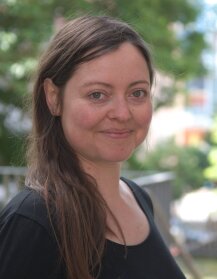
Who represents the interests of postdocs?
There are several interest groups that serve as contact partners for matters relevant to researches or employees of the university. As an employee of the university, you can participate in elections for your Faculty council, the senate, the advisory board for equal opportunity issues and the Staff Council. As a member of a structured programme, you can additionally participate in the election for Board of the Academy. You are also welcome to participate in the interest groups and actively run for election.
-
Faculty councils
The Faculty Councils are the most important decision-making body of each faculty within the Friedrich Schiller University Jena. The tasks of the Faculty Council include advising and, if necessary, deciding on the use of faculty resources such as funds, materials, personnel, etc. The Faculty Council also decides about fundamental questions of research and teaching within the Faculty. This includes, among other things, proposals to the Executive Board for the introduction, amendment and cancellation of courses of study, including subjects, as well as the enactment and amendment of examination and study regulations.
All elected professors, representatives of the academic mid-level faculty, representatives from technology and administration as well as the representatives of the students' committees are represented in the faculty councils. Doctoral researchers who are employed at the University of Jena belong to the group of academic staff and elect their representatives to the faculty councils every three years, as well as to the senate and the advisory board for equal opportunity issues.
The elections are held as online elections. In principle, all elections at the University of Jena are held together. For further information, please contact the Election Office of the University of Jena de.
-
Senate and Senate commissions
The University Senate is the central body of academic self-administration. It is involved in all important decisions of the university. Four representatives of the academic mid-level faculty participate in the Senate.
The current five Senate Committees of the Friedrich Schiller University of Jena assist the Senate in an advisory and recommendatory capacity. From the design of study programmes and teaching ( Academic Affairs Committee), the adjustment of the university's research profile (Research Committee), the support of young researchers (Young Researchers Committee), to the design of the library (Library Committee) and the planning of the university budget (University planning and budget Committee), landmark recommendations are made here and strategic decisions on the university's development are taken.
Members of the Senate and its committees are elected in committee elections every three years.
The current members of the Senate can be found here. More information about the election to the Senate and its committees can be found on the pages of the Election Office de.
-
Equal Opportunities Advisory Committee
The Equal Opportunities Advisory Committee is a body of the Friedrich Schiller University Jena with an advisory function. It aims to ensure equal opportunities for women and men at Friedrich Schiller University Jena, as required by constitutional law. The advisory committee consists of members of all faculties, the administration and the students. The Advisory committee is chaired by the University's Equal Opportunity Officers.
More information about the Equal Opportunities Advisory Committee can be found here.
-
Staff council
Friedrich Schiller University's Staff Council is the interest representation for the employees and civil servants who work at Jena University. The Staff Council's fundamental responsibilities are defined by the Thuringian Law on Employee RepresentationExternal link (in German). The Council provides assistance in all matters concerning the compliance with employee rights and employee protection. It takes on suggestions or complaints from members of staff, and it is its duty to insist that the employer take remedial action. Moreover, it has rights to be involved in certain decisions taken by the bodies of the University (participation and co-determination right). The Staff Council homepage provides answers to a number of frequently asked questions concerning work life de (in German), such as:
- Seeing a doctor during your working hours
- Change of income group
- Is it true that you do not have to provide a doctor's certificate if you are only off sick for up to three days?
- Right to strike in public services
- Thuringian Higher Education Act
- When does an accident that occurs on your way to work count as an occupational injury?
The Staff Council is elected every four years by the members of the University. The election is held as a ballot box vote. Eligible voters can cast their vote by post upon prior request. Eligible voters are informed by means of an announcement on notice boards. For more information, click here de (in German).
-
Board of the Academy
The Board of the Academy decides on all fundamental matters concerning the Graduate Academy and elects the Executive Committee. It is responsible for the admission of new members. In the Board of the Academy, the postdocs of the member institutions are represented as a separate status group and can represent their interests there. Composed of representatives of all status and subject groups of the Graduate Academy, the council represents the interface between doctoral candidates and postdocs on the one hand and the scientific coordinators, executive boards and the board of directors on the other hand.
The postdoc representative is elected once a year by the postdocs of the member institutions. Elections to the Board of the Academy take place each year during the summer semester as an online election. Those eligible to vote will be notified of the election process via email and regular mail. Further information on the board of the Graduate Academy can be found here. For further information (in German), please contact the Election Office de of the University of Jena.
How can I get involved beside my research?
In addition to your research, you can get involved in a variety of ways at University of Jena: You can represent the interests of postdocs in university committees, get involved and network in the Mittelbau network, or volunteer in Jena's civil society.
-
Representation of interests
If you want to advocate for the interests of postdocs, you can get involved in any of the following committees:
If you are a staff member of the university, you can be a candidate for the Senate, your Faculty Council and the Advisory Board for Equal Opportunities de. If you are a member of a structured programme, you may stand for election to Board of the Academy. Elections take place once a year in June. The meetings of these bodies are held in German. If you wish to stand as a candidate, you must notify the university's election office by May. You can find further information here de.
-
Engagement and networking among mid-level faculty
As a member of the academic mid-level faculty, postdoctoral researchers can network and advocate for their interests both regionally and nationally. The following initiatives are examples of this:
In recent years, the representatives of academic staff in Jena have increasingly organised themselves. Elected academic staff representatives in the senate and other activists meet regularly in the "forum mittelbau"External link. The forum aims to open up and establish a space for the exchange of information about shared interests. It also discusses issues such as the problem of fixed-term employment in the university system and the working conditions of university mid-level employees. This should be the starting point for an appropriate presence and effective representation of interests in university committees. Members of the University Hospital Jena can equally participate in this group.
On a national level, the "Network for Decent Work in Academia"External link has been founded in 2016. It connects Mittelbau initiatives from all over Germany and Austria and acts on a supra-regional level in politics and social debate. Central topics here include the problem of permanent positions and the reform of precarious employment relationships in academia. It is also represented by staff at Friedrich Schiller University Jena.
-
Activities in the Jena civil society
The civic foundation of the city of JenaExternal link bundles a wide range of opportunities for civic engagement outside the university. Here you will find numerous opportunities to participate and get involved. Another association that networks and mediates civic engagement in Jena and the surrounding area is Tausend Taten e.V.External link. Here, too, you will find a variety of projects and offers for networking and personal involvement.

Johannisstraße 13
07743 Jena Google Maps site planExternal link
